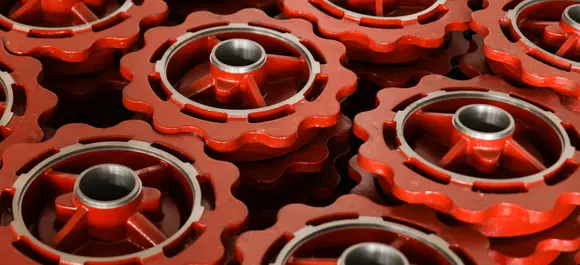Mobile:+86-311-808-126-83
Email:info@ydcastings.com
pressure vessel end caps
Pressure Vessel End Caps Importance, Design, and Applications
Pressure vessels are crucial components in various industries, including chemical processing, petrochemicals, and food and beverage manufacturing. These vessels are designed to hold gases or liquids at pressures significantly different from the ambient pressure. One of the essential parts of these vessels is the end cap, which plays a critical role in ensuring the integrity and safety of the pressure vessel.
Understanding Pressure Vessels
A pressure vessel is a container designed to hold gases or liquids at a pressure substantially different from the pressure outside of it. They are subject to strict regulations and standards to ensure safe operation, primarily due to the potential hazards associated with the high pressures involved. Common materials used in the construction of pressure vessels include carbon steel, stainless steel, and alloy steels, chosen based on the specific application and environmental conditions.
The Role of End Caps
End caps, also known as closure plates or end closures, are the components that seal the ends of a pressure vessel. They are integral to maintaining the pressure within the vessel, preventing leaks, and safeguarding the contents from contamination. The design of end caps is critical, as they must withstand extreme pressures and potential thermal stresses.
Design Considerations
When designing end caps for pressure vessels, several factors need to be considered
1. Material Selection The choice of material is vital to resist corrosion and withstand high pressures. Common materials include carbon steel for general applications, while stainless steel is often used in corrosive environments. Advanced materials, such as composite materials, are also being explored for specialized applications.
2. Thickness and Geometry The thickness of the end cap directly correlates with the pressure rating of the vessel. The end cap must be thick enough to endure the internal pressures without deformation or failure. The geometry of the end cap, such as whether it is flat, hemispherical, or conical, also affects its performance under pressure.
pressure vessel end caps

3. Welding and Fabrication The methods used to attach the end caps to the vessel body are critical for maintaining integrity. Welding is the most common method; hence, weld quality and technique are paramount in ensuring that there are no weak points that could lead to leaks or failures.
4. Pressure Rating End caps must be designed to comply with the relevant pressure rating guidelines, often dictated by industry standards such as ASME (American Society of Mechanical Engineers) or PED (Pressure Equipment Directive). The design must consider the maximum allowable working pressure (MAWP) of the entire pressure vessel system.
Applications of Pressure Vessel End Caps
Pressure vessel end caps have a wide range of applications across various industries
- Chemical and Petrochemical Industries End caps are used in reactors, separators, and storage tanks where they contain chemicals under high pressure.
- Pharmaceutical Manufacturing In this sector, end caps provide a sterile barrier, necessary for maintaining the purity of products being processed and stored.
- Food and Beverage End caps are critical in ensuring that pressurized systems in food processing and beverage manufacturing maintain cleanliness and safety standards.
- Oil and Gas End caps in pressure vessels used for transporting oil and gas are designed to withstand high pressures and formations, ensuring integrity during production and transportation.
Conclusion
Pressure vessel end caps play a vital role in the efficient and safe operation of pressure vessels across numerous industries. Their design and fabrication must adhere to strict standards to ensure that they can withstand the challenging conditions posed by the contents they contain. As technology advances, the development of more resilient materials and innovative designs continues to enhance the safety and efficiency of pressure vessels, demonstrating the importance of end caps in this critical area of engineering. Whether it is in chemicals, pharmaceuticals, or energy, the significance of end caps cannot be overstated—they are essential in upholding the integrity and reliability of pressure vessels worldwide.
-
Impeller Technology That Powers Precision in Pump SystemsNewsMay.22,2025
-
Valve Durability Begins with Quality Cast Iron ComponentsNewsMay.22,2025
-
Performance Cooling with Advanced Automobile Water Pump SolutionsNewsMay.22,2025
-
How Motor Housing and Oil Pans Shape Engine PerformanceNewsMay.22,2025
-
How Metal Castings Drive Modern Manufacturing EfficiencyNewsMay.22,2025
-
Exploring the Engineering Behind Valve Body CastingsNewsMay.22,2025











